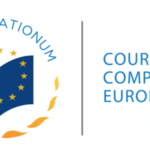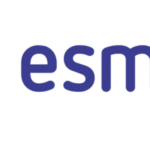From September/October 2022, the European Union Institute for Security Studies (EUISS) is seeking to recruit seven trainees to assist in its research, event organisation and outreach activities. This will provide an opportunity for selected candidates to build research skills; develop experience working in an EU agency; gain exposure to policy-oriented research; and deepen their understanding of EU foreign and security policy mechanisms and priorities. The traineeship promises to be an interesting and rewarding opportunity for career and personal development. Throughout the traineeship, trainees work closely with a designated member of the Institute’s research team (a Senior Analyst, or the Brussels Executive Officer and the Security and Defence Editor for the trainees based in Brussels). On an ad hoc basis, trainees will also be expected to work with other Analysts within the research team and assist them on particular projects.
Five trainees will be based at the EUISS Paris Headquarters and two trainees will be based at the Brussels Liaison Office.
For the 2022-2023 traineeship programme, the required domains of expertise are:
- Asia;
- European foreign, security, and defence policy (Brussels Liaison Office);
- Middle East and North Africa;
- International cyber and digital issues (Brussels Liaison Office);
- Russia and the eastern neighbourhood;
- Sub-Saharan Africa;
- Transnational security (the concept of transnational security includes among others, counter-terrorism, border management, trafficking, organised crime, the protection of critical infrastructure, election meddling, covert military action and disinformation).
When submitting their applications, candidates are obliged to select one domain of expertise/profile only.
The duties and responsibilities of trainees will include:
- Desk and library research on topics selected by their supervisor;
- Preparation of research dossiers, write-up of material, completing/updating of the mapping of research topics;
- Assistance in the organisation of events, including performance of administrative tasks, logistical support, finding and contacting speakers, preparing conference agendas and material, taking notes etc.;
- Event-related research support, if needed;
- Updating of EUISS databases and mapping contacts;
- Other related duties as required.
Eligibility criteria and required competencies:
- Nationality: Candidates must be citizens of an EU member state.
- Education: Candidates must possess a Master’s degree in political science, international relations, economics, or a related field at the time of the traineeship’s beginning.
- Linguistic skills: Candidates must be completely fluent in English and have a thorough knowledge of at least one other EU language. Additional knowledge of one or more languages of the region of expertise will be considered an asset.
- Core competencies
- Experience in doing data gathering and research;
- Experience in event organisation;
- Computer literacy;
- Some previous relevant work experience will be considered an asset;
- Proven analytical and report writing skills will be considered an asset.
- Behavioural competencies:
- Highly organised and self-motivated;
- Creativity, flexibility and ability to work to deadlines;
- Maturity, initiative, tact and high sense of responsibility;
- Demonstrated ability to work in a multinational team.
Conditions
- Duration: The traineeship will be for a period of 10 months, running from the beginning of September or October 2022 to the end of June or July 2023 (at the moment of sending the offer to selected candidates, the EUISS reserves the right to adjust the starting date).
- Location: Five trainees will be based at the EUISS headquarters in Paris and two at the EUISS Brussels Liaison Office.
- Stipend: Trainees will be awarded a stipend of €1,300 per calendar month. Paris-based trainees will receive an additional €200 as a cost-of-living adjustment.
- Other conditions:
- Trainees are expected to be present at the Institute during normal working hours, although justified absences may be authorised. Should Covid-19 relating restrictions be in place at the moment of taking up duties, trainees should benefit of the teleworking policy that is implemented at the EUISS (important note: teleworking is not allowed from countries outside France or Belgium).
- Trainees are entitled to 1.5 day’s leave per month, as well as statutory holidays.
- Health and accident insurance is compulsory. The EUISS does not provide such insurance. Proof of insurance must be presented to the EUISS at the latest on the first day of the traineeship and should be valid for the entire period of the traineeship.
- The EUISS regrets that it cannot pay for travel expenses or accommodation, nor can it assist trainees in finding accommodation in Paris or Brussels beyond providing them with general information and links to specialised sites or giving them advise if needed.
The deadline for applications is Friday, 22 April 2022, 14:00 CEST. Applications received after this deadline will not be considered.
Instructions for applicants:
- Complete the online application form;
- Attach a detailed CV in English (.pdf or .doc/x);
- Attach a cover letter in English addressed to the EUISS Director, outlining the reasons for the candidate’s interest in the Institute’s traineeship programme and the applicant’s main strengths.
All applicants will be informed of the results of their application by the end of the procedure.
Click here to download the rules governing the traineeship programme at the EUISS.







Leave a Reply